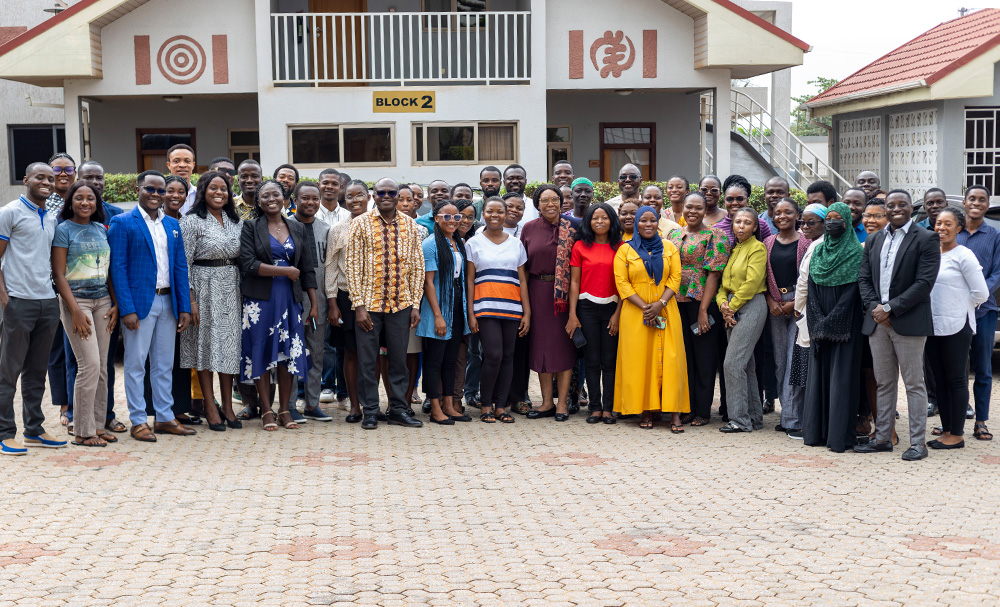The KNUST Nutrition and Sustainable Agri-food Collaborative, in partnership with the Mastercard Foundation( Nkabom Collaborative) has launched a five-day Record Keeping and Data Management in Agribusiness Short Course.
The programme, organised under the Education Pillar of the Project, brought 50 participants from across Ghana to strengthen their capacity in record keeping and data-driven decision-making in agribusiness.

Speaking at the launch, Professor William Otoo Ellis, Principal Investigator for the Nkabom Project, highlighted the importance of data for innovation and problem-solving.
He admonished the participants to try as much as possible to get the best out of the short course, which they can use to better future of the country. “I am confident one of you sitting here will come up with something far superior in how to collect and manage data. That is the challenge we want to throw to ourselves,” he said.
He also urged participants to view data not only as information but as an innovation tool.
Drawing on a personal experience, he highlighted the urgency of improving data systems. “Once I was coming to a meeting when the GPS directed me all the way to Juaben, even though the venue was close by. This shows our data needs refining,” he stated.

Professor (Mrs.) Ibok Nsa Oduro, co-lead for Education Pillar, emphasised that the training goes beyond technical knowledge, aiming to reshape participants’ approach to learning and problem-solving.
“This training is a mindset change training. Its purpose is to help shape the way you think. You are not just here to gather information but to reorient your thinking. We need high-end data as evidence to change policy, and we want you to do that in all sincerity,” she stated.

Dr. Bright Asante, lead facilitator, focuses on equipping participants with practical tools to improve agribusiness management.
“This short course is designed to enable participants to keep basic records, analyse data, and make informed business decisions,” he explained, adding that participants will be taken through financial records such as balance sheets, income statements, and cash flows, and guide them on how to measure business viability.
He highlighted that the training also covers ethical and legal considerations in data handling, stressing the importance of confidentiality and accuracy.
“It is important that users of such data appreciate the legal and regulatory framework, as well as the ethical issues that come with it, so that they use data solely for decision-making purposes,” he noted.

















